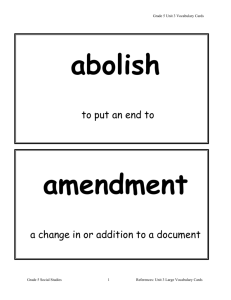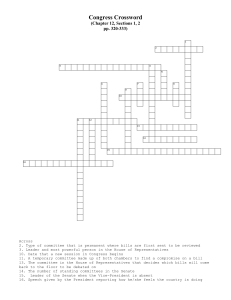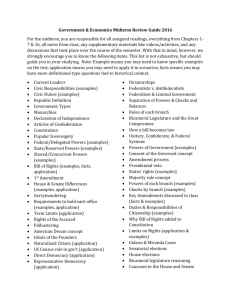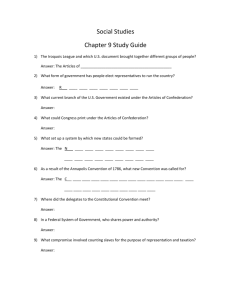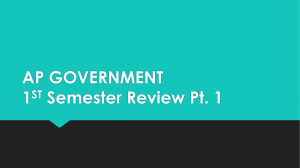File
advertisement
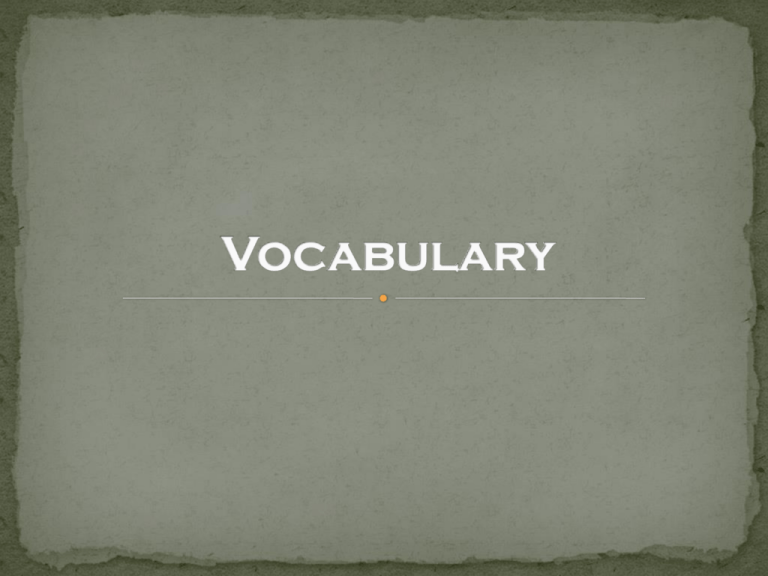
Definition: lying under oath The victim was found guilty of perjury in the courtroom, he lied straight to the judges face. Definition: The powers explicitly granted to Congress by the Constitution, sometimes referred to as enumerated powers Congress exhibits the expressed power to regulate trade among states and with other nations. Definition: Article I, Section 8, Clause 18, of the Constitution which gives the national legislature the power to “make all laws that are necessary and proper” to exercise the powers granted by the Constitution The Necessary and Proper Clause is sometimes called the elastic clause and grants Congress the power to pass any law necessary for carrying out the enumerated powers. Definition: Proposed laws to authorize spending money. An appropriation bill is an act that authorize use of public funds for a specific purpose. Definition: Commerce among states Interstate commerce refers to the sale, exchange, or purchase of materials, money or goods, transportation of people and navigation of waters between different states. Definition: Stated that when office of the Vice President becomes empty, the president appoints a replacement. If the President dies, the Vice President becomes President The 25h Amendment deals with succession to the Presidency and filling of vacant positions. Definition: An addition to a bill that often has little relationship to the bill’s main topic A rider is a provision on a subject other than the one covered by the bill and occurs at the end of a session. Definition: The refusal by the president or governor to sign a bill When a President vetoes a bill, he returns it to Congress including reasons for the action. Definition: The vote to end debate of a bill in the Senate A cloture closes a debate. Definition: Permanent Committee of the House of Representatives The standing committees address the major areas in which most proposed laws fall such as agriculture, the budget and armed services. Definition: A temporary committee of the House of Representatives Select committees carry out tasks not already completed by other existing committees. Definition: A committee made up of members of both chambers of the bicameral legislature Joint committees are formed from members of the House and Senate and address broad issues that affect both chambers. Definition: A committee that has total jurisdiction on taxation, tariffs and other revenue-raising bills. People who serve on the Ways and Means Committee cannot serve on any other committees. Definition: Contacting a public official to persuade the official to support the group’s interests People who partake in lobbying are trying to persuade officials to support their views. Definition: This stands for political actions committees which are an organization created to raise and contribute money legally to campaigns of political candidates. Examples of PACS include fund-raising organizations established by corporations, labor unions, and other special-interest groups Definition: Measures in which both houses of Congress address matters that affect the operations of both chambers Concurrent resolution deals with matters where laws aren’t needed. Definition: The presiding officer of the House of Representatives. The speaker of the house is the member who runs the meeting, appoints some members to committees, refers bills to the standing committee and puts question to vote and follows up in succession. Definition: A bicameral legislature with the House of Representatives based on population and a senate with equal representation for all states. The Great Compromise combined the New Jersey and Virginia plans, pleasing both small and large states. Definition: The system of government under which the national and state governments share powers Federalism divides the power evenly between central government and territorial subdivisions. Definition: A system in which many decisions are made by an external member-state legislation A confederation is a united system by alliance. Definition: The powers that are not specifically granted to the federal government nor denied to the states that are reserved for the states Reserved powers are powers that belong exclusively to the states. Definition: The powers shared by both the federal and state governments. Concurrent powers are shared between the state and national governments. Definition: The power of the supreme court to declare laws and executive actions as unconstitutional Judicial Review helps keep checks and balances and is a power of the judicial branch. Define: People who believe that individuals should be responsible for their own well being Conservatives believe people should not rely on the government for assistance Definition: People who believe that the government should be used to remedy the social and economic injustices of the marketplace A liberal supports government regulation of the economy. Definition: Organized groups of people that seek to win elections in order to influence the activities of government Two common examples of political parties include Democrats and Republicans. Definition: The day in which several US States hold primary elections Super Tuesday is a day in which many primaries are held on the same Tuesday in early March. Definition: The body of 538 people elected from 50 states and the District of Columbia to cast the offical votes that elect the president and vice president. The framers created the electoral college as a means of insulating the government form whims of a less educated public. Definition: An act that encouraged states to take measures to increase minority representation in congress The Voting Rights Act of 1965 was a landmark piece of national legislation that prohibited discrimination in voting. Definition: Provisions within legislation that appropriate money to a specific project Earmarks are funds or resources that are designated for a specific purpose. Definition: A means by which a President can reject a bill, when Congress is not in session, by not signing it A pocket veto is in effect in the president doesn’t sign a bill during the 10 days before a congressional session ends. Definition: An agreement with the prosecution to agree to a less serious crime and sentence Plea Bargaining is an agreement in a case between the prosecutor and the defendant. Definition: The authority of some courts to review decisions made by the lower courts Appellate Jurisdiction can only decide issues of law nt the facts of the case. Definition: The concept that a judge should interpret the Constitution according to the Framer’s original intentions Judicial restraint is when judges are reluctant to overturn the acts of legislature. Definition: The concept that the Constitution should be interpreted more broadly. A judge who supports judicial activism is one who has no qualms overturning legislature. Definition: Laws the Congress pass to appropriate money for local federal projects A pork-barrel legislation is a government project that yields its benefits to its representative of its political party. Definition: The right to vote in political elections The 19th amendment grants women suffrage. Definition: A system of government in which the people elect their representatives The United States is a country that’s government is an example of a democracy. Definition: The drawing of district boundaries for political advantage Gerrymandering is an act of manipulating electoral districts so that they are in favor of one party. Definition: Being made to stand on trial twice for the same offense A personal may have to participate in double jeopardy even when new incriminating evidence has been uncovered.


